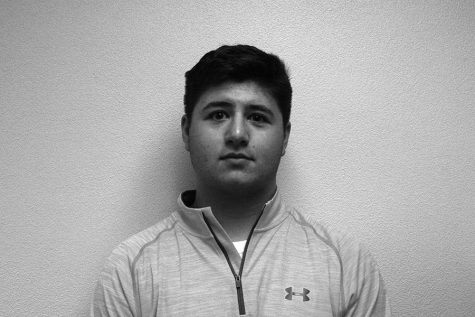Opinion: Due Process deserved in cases of sexual assault
Right to fair trial must apply to all court cases
Acts of sexual assault represent serious offenses which should not be taken lightly, however, students accused of sexual harassment and rape deserve the right to a fair trial just as much as any other case.
Due process is defined as the right to a fairly judged trial in court, and a natural right awarded to American citizens by the Fifth Amendment. Due process goes hand-in-hand with the most basic principle in the United States Court System—all defendants are to be considered innocent until proven guilty.
Culture and media create innate bias in favor of the alleged victims, who are automatically assumed to be telling the truth, while the accused defendants are presumed guilty. Cases of campus sexual assault are widely publicized by news outlets. Media is quick to jump to conclusions, latching on to initial reports of evidence in favor for the alleged victim.
As culture surrounding these cases has become increasingly influenced by the feminist movement, public opinion is more likely to side with the alleged victim. Because of this, the accused defendant is labeled as guilty. The presumption of guilt caused by media outlets and the increasingly sensitive public denies the defendants the right to a fair, objective trial.
In most cases of campus sexual assault, the victim is female and the defendant is male. According to the Rape, Abuse & Incest National Network, 90% of rape victims are female. Because of this, the issue of campus sexual assault has often been viewed as an issue of males against females. However, it is important to note that cases of sexual assault are not limited to heterosexual encounters, and the roles of victim and alleged perpetrator are not defined by a specific sex or gender.
As the legal qualifications for what is considered consent is increasingly blurred and inconsistent, court cases naturally oppose defendants. In the states of California, Illinois, New York and Connecticut, “affirmative consent” laws state sexual partners must receive explicit and ongoing consent before encountering in sexual activities, specifically on college campuses. Individual universities have adopted their own “affirmative consent” policies, including the University of Minnesota.
While these affirmative consent laws aim to protect all parties in sexual encounters, they can also create inconsistencies in court. The ability to prove both parties’ mutual consent throughout all sexual encounters can be nearly impossible for a defendant, especially given the ever changing definition of what is considered consent on a college campus. The ability to prove consent becomes a situation of word against word, where the built up bias against the alleged perpetrators favors the statement of the case of the plaintiff.
In a study recently conducted by John Villasenor, a law professor at UCLA, an estimated one in three innocent students are ruled guilty in cases of campus sexual assault. One third of innocent students with unjust court rulings, many of which likely resulted from the influence of public opinion, are denied a fair trial. False accusations of rape and sexual assault automatically put a target on the backs of defendants for the public and media outlets to attack.
In the case at the University of Minnesota, members of the football team were investigated early in the year in a criminal investigation, where the police found no credible evidence to convince them to continue the investigation further.
Months later, a Title-IX complaint from the prosecutor and alleged victim of the sexual assault reignited the scandal, causing many players to face suspension ahead of the bowl game, imposed by the school. Although the reasons behind the suspension were not initially identified due to privacy restrictions, it was later clarified that it was directly influenced by the allegations of sexual assault.
The defendants and the rest of the team, including former head coach Tracy Claeys, protested the decision, standing up for their right to due process. Some of the players were later found innocent yet again, while the rest are still under trial.
The message of their protest should not have to be clarified, but unfortunately has to be. The team, and in particular Claeys, received immediate backlash from the public. Their protest was blatantly disregarded as a message supporting the alleged actions of sexual assault and rape of their teammates. However, the true message was clear: the players stood against the unjust discrimination their teammates faced in the wake of the case and subsequent suspension.
Amidst the protest, players singled out the identification of their teammates as a violation of constitutional rights. The alleged victim remained anonymous throughout the entire process and her identity has been kept unidentified since. The disparity in the treatment of the two parties is an example of how due process was denied to the defendants. The players stated their boycott of football activities would end when due process was followed.
As a male expecting to attend college in the near future, I have become increasingly fearful for the future of relationships on campus, both my own and for all students. Students should not be afraid to engage in intimate relationships. They should not have to fear being denied a fair trial because of an accusation of sexual assault. They should not have to fear the influence of a severely biased public and media outlet on a court case.

Howdy, I’m Sam, sports-editor extraordinaire and the seventh coolest person on staff. I’m a senior, so I can’t wait for those discounts at the movie...


